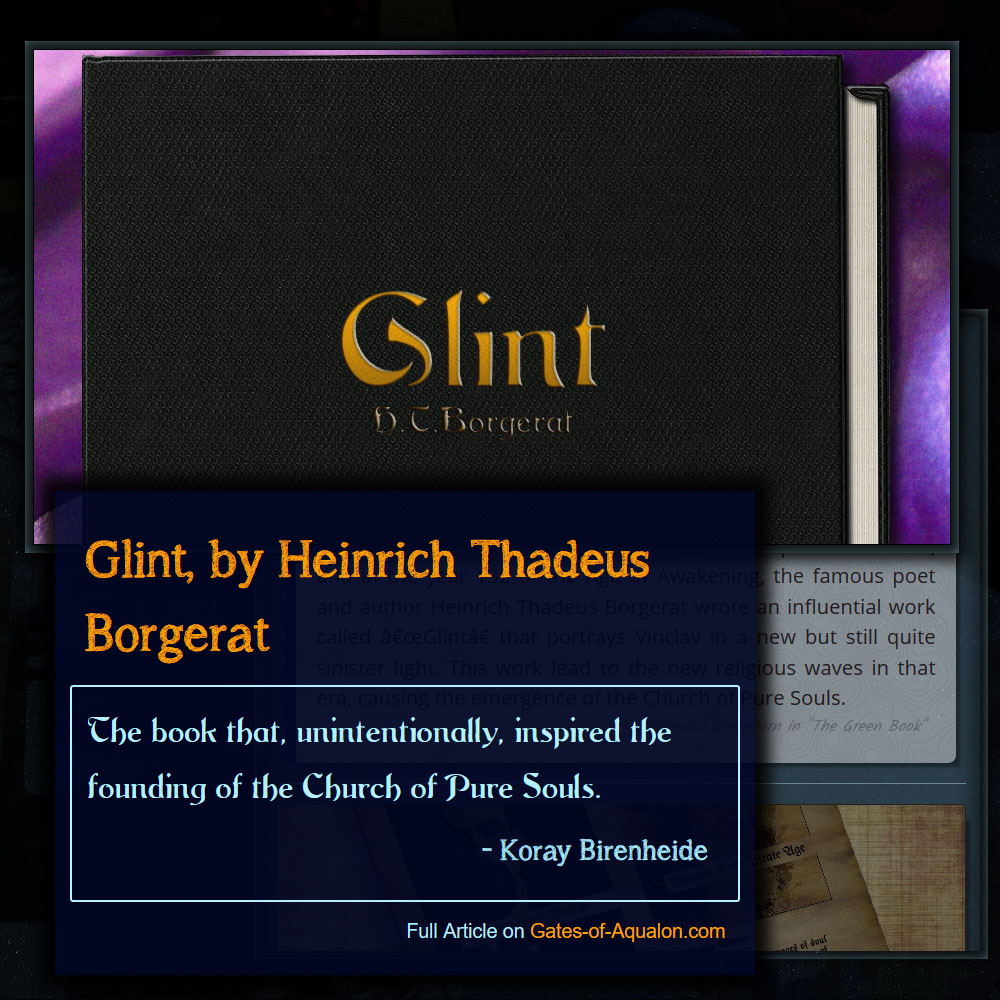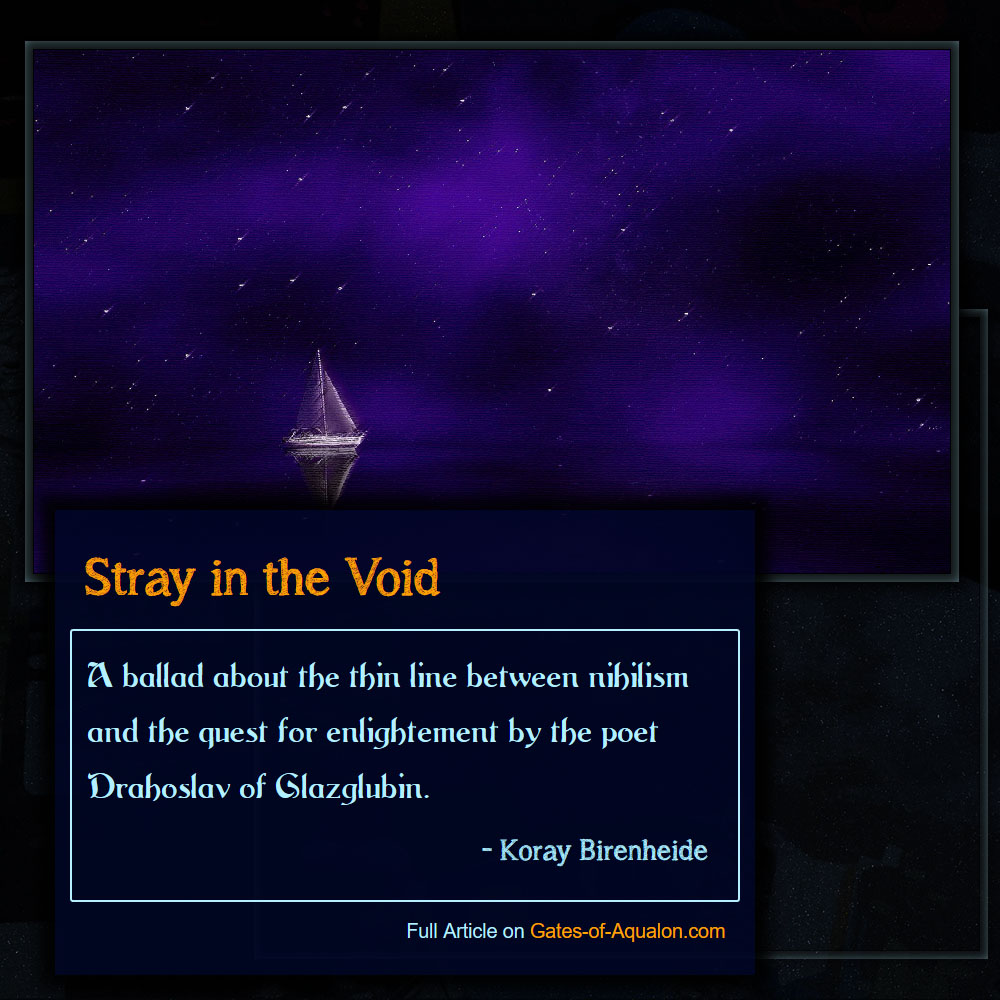Preface
Dr. Helen De Vries published her famous paper "The Defining Quality of Life", a pun on consciousness having an defining effect on particle states, in 120 AH, during the height of the war with
the Old Gods. At the time it received some acclaim as a game changing new theory on the nature of the universe and
the Great Clockwork, which was especially well received in
clockwork theology circles.
Historically Speaking
Ever since
the Maritime Stratocracy of Guantil-ya declared its transition to a technocratic society, believing that education and scientific advancement were the key to an utopian society, there has been a certain trend of weariness against magic since there was a growing belief among the technocrats that everything was quantifiable, even
magic and the Great Clockwork.
Many attempts were made to research the phenomenon of magic and much data was collected on the subject.
Introduction
After extensive study in a dangerous clockwork exclusion zone, wrought with drug farmers and traffickers, De Vries concluded that
Prof. Dr.
Tyra Lore's theory was correct and the meta-medium previously referred to as the 'ether' was in fact the Great Clockwork itself.
The ether, of course, was initially used as an explanation for how light and other electromagnetic waves could travel through a vacuum. It was supposedly a meta-medium that existed throughout the universe and was capable of having electromagnetic waves propagate through it. Lore's hypothesis brought forth the idea that the Great Clockwork, whose existence had been well documented by clockwork theologists in the past, was in some way performing the function of this so-called ether.
De Vries discovered that in non-clockwork conditions electromagnetic waves could still travel through a vacuum but exhibited the properties of particle streams with uncertain momenta which locked into certain trajectories when observed. This was the first indicator that the non-dual nature of electromagnetic waves was a by-product of the Great Clockwork, and it was hypothesized that the clockwork might not permeate the entire universe but only close-by parts of it. A theory that was further evidenced by the De Vries Observatory.
The basic Theory
In its abridged form, De Vries Cluster Field Theory states as follows:
Base particles, that is the lowest, indivisible energy quanta of their respective kind, as well as their direct molecules (electrons, base protons, base neutrons) possess an inherent uncertainty of either position or momentum, that is an either infinite existence in momentum space or an infinite existence in position space respectively, based on how precisely the other state is observed. This observation, or 'state locking', can be achieved on a base particle scale by measuring the state but also occurs naturally as soon as direct molecules begin to cluster into basic blocks leading to the law of cluster proportional certainty. Once such a cluster becomes part of a system complex enough to produce conscious thought, that is to observe itself and the world around it consciously, this base particle certainty increases by a severe, non-proportional magnitude, leading to the law of non-proportional cluster awareness. The quality of sufficiently sized clusters to make particles that come in contact with them certain for the duration of contact is called 'De Vries Field' (DVF), and the event horizon after which particles must state-lock can potentially expand beyond the boundary of the cluster when the system it is part of becomes self-aware. When this occurs, it is possible for the DVF to resonate with the Base De Vries Field, which can be attributed to the Great Clockwork, implying a direct connection between DVF and the producing of effects referred to as 'magic'.— Dr. Helen De Vries, The Defining Quality of Life
This theory was the stone that loosed an avalanche: scores of related new hypotheses, scientific movements, and discoveries followed quickly in the years to come.
Notable DVF-Based Technologies
Photon-Electron-Interaction-Based Discoveries
A number of findings are attributed to the discovery of the DVF, because until its formulation, there was an inherent misconception of how the interactions between electromagnetic waves and particles worked due to the unknown dual state of both.
Once the phenomenon was better understood, certain biological processes could be better comprehended and new types of technologies were being conceived.
The Photoelectric Effect
In discovering new types of light-matter-interactions, incited by the concept that photons, which were now understood to be base particles of light, when they hit electrons were absorbed by these and imbued them with their energy. High energy electrons on the other hand could let loose free photons.
The photoelectric effect is the emission of electrons when light shines on certain materials, effectively increasing their internal energy beyond capacity.
This discovery eventually led to the photoelectric collector cell, sometimes referred to as a 'solar cell', and the massive proton stream collector array (MaProSCAr), both advanced and emission free energy generation technologies.
DVF Suppressors
After extensive research into the threshold between the
Jamphel Yeshe clockwork exclusion zone and the surrounding sea where the Great Clockwork functioned normally as well as joint research projects with representatives of
the Brotherhood of the Null, Prof.
Inv. Vincent Kunibert Greenhorn was able to successfully suppress the Base DVF created by the Great Clockwork within a small range in 318 AH, racing against time to develop a field-ready version. In the end he did not complete his work before the end of the Age of Heroes in 320 AH.
It was not until 5 GE that he constructed the first industrial-strength DVF suppressor, capable of nullifying magic more consistently and reliably than most trained Null, given it had a steady supply of electric energy.
In time, DVF suppressors were installed all over Borealis, turning the entire city into an artificial clockwork exclusion zone and rendering it into a near impenetrable anti-magic fortress.
This permanent operation of the suppressors was sanctioned and instated by the Council of Faculties in 12 GE.
History
A Precursor
It was during the Age of Heroes, when the
Greenhorns of
the Yamato Kingdom expatriated themselves to join
the United Ocean Belt Technocracy(UOBT) which had mainly contributed to the war with the Old Gods by introducing fire-arms to the battlefield, that the concept of
Technamagix began to make its debut on Aqualon. Technamagix, the combination of technology and magic using either a TEB (
Tech Engine Build), a MEB (
Magic Engine Build), or a CTB (
Chained Transmission Build), was initially based on the application of the scientific method to reverse-engineer and improve upon the
Angelscript used by
the Angel Saxons for their magic arms and armor and of course their magical forging skills themselves.
And while this heralded a boom in development as Technamagix was used for everything, including production, farming, and construction which catapulted the UOBT far ahead of the curve, it was by some seen as a mere practical application of magic, using the barest principles of science to mold it.
The urge to understand, as Sagamund Greenhorn put it, "What holds the universe together at its innermost core" (not referring to its spacial center) has driven technocrats to divide the smallest things they could find further and further, seeking ever more elaborate methods to split them apart and find the smallest things that make up the world.
This lead to a long history of
atomic models until Dr.
Tanja Nguyen released what is today known as the
Nguyen Standard Model, which shows that
atoms
1It is paramount to understand that the term 'atom' stopped being used once it was discovered that the name itself, meaning 'indivisible', was no longer accurate and at that time considered a fallacy by the technocrats.
themselves are made up of smaller parts, prompting the nomenclature to jump a level down, making the newly 'sub-atomic' particles the new atoms, and what was previously believed to be the atoms became 'basic blocks'.
Only with the staggering discovery of Prof. Dr. Inv. Mark Darmstadt, which however always took a back-seat to his invention of the Darmstadt Processor when his name was mentioned, would the real research into what would later become known as the De Vries Field begin.
The Particle Anomaly
The De Vries Field is a by-product of the macroscopic clustering of base particles. After it was discovered that basic blocks could be split further and further, a hypothesis of base energy packets, so called base particles, was put forth by Prof. Dr. Inv. Mark Darmstadt, who believed to have discovered a consistent anomaly during his famous so-called "interference anomaly detection" experiment, which showed that miniscule portions of observed electromagnetic waves caused errors in the projection pattern they should produce when directed through a double slit. This error could only be explained if this miniscule portion behaved like a particle stream instead of a wave.
This discovery lead Darmstadt to believe that he had discovered the key to consciousness as observation of the particles (through measurement) collapsed this small part of the wave-function, meaning that waves could have the properties of particle streams.
His theory was that observation locked a number of uncertain particles into certain trajectories, meaning that consciousness could have an effect of the way electric patterns in the brain flow.
He also speculated that this might be a clue towards the missing link between magic and the natural laws of reality, though he never put forth a hypothesis.
Prof. Dr. Tyra Lore, who had tutored Dr. Helen De Vries and authored the controversial paper "The Grand Ether and Magic Unification Hypothesis", was a firm believer that the Great Clockwork was not only strongly responsible for the existence of magic, but also prevented gyrometrics to work properly, inhibiting a strong particle-wave duality which had been only observed as a weak anomaly by Darmstadt.
Field Research
De Vries's further research was only made possible by
Ar. Kanna Amakagawa, who had died during an uprising on Jamphel Yeshe where she had conducted field research into the unusual qualities of the location, specifically retaining to its status as a clockwork exclusion zone.
De Vries ventured to the island and took up Amakagawa's research, finding a treasure trove of well-documented experiments and notes.
She was indeed able to prove that the dual nature of particles was far more pronounced on Jamphel Yeshe, further cementing her hypothesis, and she began researching the threshold effect between base particles and particle clusters, soon gaining the insight that the relationship was anti-proportional until consciousness was introduced, at which point it increased by several orders of magnitude. This meant that the larger a mass was or the nearer it came to conscious thought the more certain its contained particles became.
These observations and experiments became the basis for modern De Vries Cluster Field Theory, named after the strange De Vries Field created by the clustering of uncertain base particles.
















